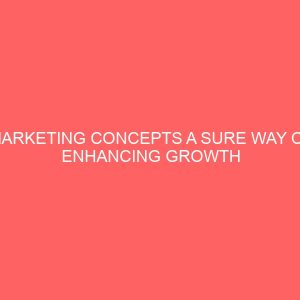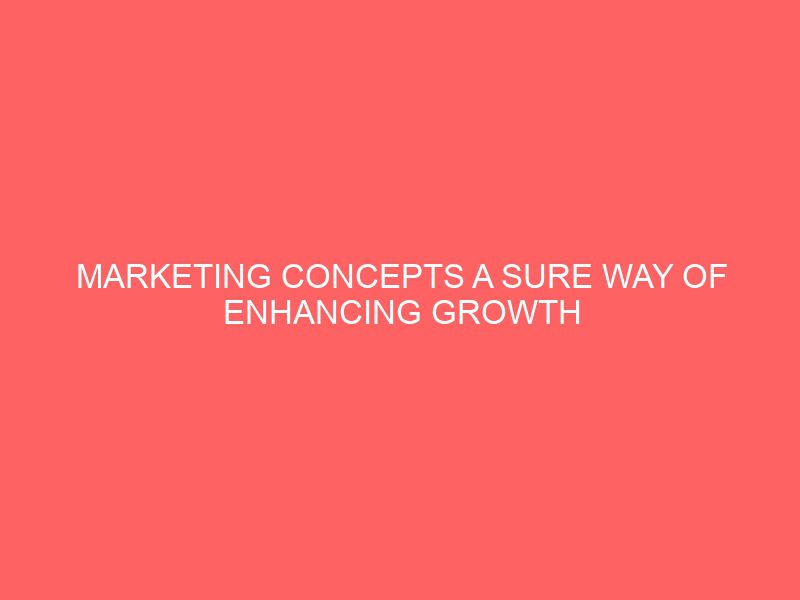Description
CHAPTER ONE
INTRODUCTION
1.1 BACKGROUND OF STUDY
The concepts “insurance” has been defined by many authors and from different perspectives but all those definition are emphasizing on one things, that is being a pool of risk and also a risk transfer from one person to another.
According to Falgan J.I (1989). Insurance is defined as a social derive of reducing risk by combing a sufficient number of exposure units to make their individual losses, collectively
Insurance allows the individual insured to substitute a small cost (ie premium) for so large but uncertain loss (not to exceed the amount of insurance) under an arrangement whereby the fortunate many who escape loss will help the fortunate many who escape loss will help compensate the unfortunate few who suffer loss. The aim of insurance contract is to provide indemnity, ie compensation for injury or loss sustained. Insurance has two broad classes which include life and non-life insurance. Life insurance comprise of whole life assurance, term assurance, endowment assurance and anmioty whole non-life insurance consist of fire insurance, marine insurance, motor vehicle insurance, contractors “all risk” and engineering risk insurance miscellaneous insurance and oil and gas insurance, occupy a strategic position in an economy because it is the only business which exists for the survival of other business.
The marketing concepts is a philosophy of business that sates that the customer wants satisfaction as the economic and social justification of their wants at a profitable volume in an integrated business operation.
The marketing concepts can also be said to be the philosophy that recognizes that the consumers is at the center of everything we do in business it’s concepts believers that without the consumers there can be no marketing and based on this it should be aimed at satisfying the need of the consumer. The following are some of the factors that enhanced the adoption of the marketing concepts.
a. MASS MARKERS AND MASS AFFLUENCE: The existent of well to do consumers: whose patronage, a discordant collection of producers would compete, inspires these producers to adopt the marketing concept. In this state of market competition, with consumers who are affluent, marketing concepts helps producers to sufficient satisfy these consumer so as earn.
b. ENHANCES IN MARKETING CHANNELS: Nigerian distribution channels here changed considerably over the years, becoming more complex and more diversified. This has enabled the consumer to locate and buy products of their choice easier from producer. Producers always adopt marketing concepts to ease the diversification and complexity of distribution channels.
c. TECHNOLOGICAL CHANGES: Technological charge in most developing countries as enhanced the production of goods and services in amazing varieties which can be made available to consumer the speed associated with these technological changes means that producers would more seriously compete for the consumers money. Marketing concepts offers the surest way for fully satisfying consumers want under this situation.
d. GROWTH OF MASS COMMUNICATION MEDIA: this also contributes to the adoption of marketing concept in the sense that many more consumers in far places can be informed about the existence of products. In this way an insure in owerri, Imo state could compete with an insurer in far away Lagos for the patronage of consumers in Lagos. This existence growth of mass communication means that competition for the consumer money is generally more intense since a producer would be well aware that even a competition who base in overseas coned fight for a local consumer. To cope in this state of intensely competitive market situation, we are likely to adopt and implement the marketing concept.
e. A CROP OF PROFESSIONAL MANGERS: The existence of a crop of professional managers, the transfer of full management and executive responsibility and authority for the different organizations from the founder to a crop of educated and professional mangers would enhance the adoption of the marketing concept.
In spite of the inductive appeal of the marketing concepts, many firms are unable to adopt it in their organization. This state of affair is normally due to one a combination of these factors.
i. Product orientation: level of economic development of a society and certain peculiar characteristics in the dynamic cycle of an economy may mean that certain goods and services. Which vary in duration due to the would perhaps perceive its major function as service a s possible for sale to satisfy the overwhelming demand. This situation cause competition to be mild and marketing concepts would remain unappreciated and un adopted.
ii. COMMUNICATION DIFFICULTIES AND UNCOORDINATED PROLIFERATION OF SPECIALIZE: the existence of communication difficulties among the different function department within the organization may arise as a result of completely of the function performed by the various departments and their lack of relationship with one another. The growing complexity usually followed by in coordinate proliferation of special lost. It may also head to work at purpose, frication and inefficiencies.
iii. CONFLICTS AMONG DEPARTMENT GOALS: This is the usually strong drive within the different specialist to justify their own positions
The marketing concept is based on three fundamental beliefs.
i. Marketing orientation: the insurance company should try to research and find out how best to create awareness or orientate the customers.
ii. Profitable sale volumes: Target customers should be examined by the company to find out whether their products, customers, salesman and territories are profitable.
iii. Co-ordination of marketing activities: This is also referred to as organizational characteristics of the chief marketing executive. This measure is used determine the extent of the implementation of the marketing concepts. Here, the organizational status of the chief marketing executives and the extent of integration of marketing functions under the chief marketing functions is the main concern.
However, to accepts a concept is one thing to implement that concepts is another thing. It is vie of the majority of the executive that most marketers in Nigeria are most actually putting the marketing in Nigeria are most actually putting the marketing concepts into operations in their day to day marketing activities although they have paid considerable attention to the concept.
Therefore, the major problem facing the marketing concepts in Nigeria is implementation, that is why strategies are being mapped out by most companies to meet the demand of the customers by applying marketing concepts to it business. Those strategies will be operating on these premises;
1. Emphasis must be on customers wants.
2. The insurance company must determine first what the customers want and then figure out to make and deliver a product to satisfy those want.
3. The insurance company’s management must be profit oriented.
4. The company planning must be long-men oriented in terms of new products, tomorrow’s markets and future growth.
1.2 STATEMENT OF PROBLEM
In site of the growing number of insurance companies in Nigeria, the level of confidence on the insuring public is still low. This is because some companies adopt selling concepts to marketing concepts in their marketing activities.
Moreover, internal problems among executives in an organization can hinder the smooth implementation of marketing concept to insurance activities. Conflicts among departmental head communication difficulties and in coordination of to effectively and efficiently apply the marketing concept to insurance operations.
Finally, over mechanization on the sale concept rather than the marketing concept ha resulted in reduced sales, profits and efficiently in company’s operation. This has adversely affected the industry because people are beginning to lose faith in insurance industry.
1.3 STATEMENT OF THE HYPOTHESIS
The following hypothesis were formulated in order to carry out a detailed research on the topic they include.
Hypothesis I
Ho; the application of marketing concept has not enhanced the marketing insurance in Nigeria.
Hi: the application of marketing concepts has enhanced the marketing of insurance in Nigeria.
Hypothesis II
HO; The marketing concept cannot be successfully applied in the insurance industry in the area of marketing
HI; The marketing concepts cannot be successfully applied in the insurance industry in the area of marketing.
Hypothesis III
HO; Marketing concept has not increased sales volumes of insurance products in Nigeria.
1.4 OBJECTIVE OF THE STUDY
The aim of this study is to examine the extent and scope of the application of marketing concept to insurance industry.
The specific objectives of the study are;
i. To examine the relevance of the marketing concept in the marketing of insurance services in Nigeria.
ii. To identify those factors that militates against efficient application of marketing concept in insurance activities (ie marketing).
iii. To examine the problems encountered in the adoption of marketing concept in insurance industry in Nigeria.
iv. To examine the extent to which marketing concept has enhanced marketing of insurance in Nigeria.
1.5 SIGNIFICANCE OF THE STUDY
This study will be of immense benefit to mangers and departmental executives as it will help them to determine the best way to apply marketing concept to their business activities.
The study is equally significant in portraying the problems encountered by insurance companies in adopting marketing concept in the operation. This will serve as a vital information to new entrants into the industry as they will strive to avoid those problems.
More over, the lose of pubic confidence on the industry operation will be removed, as information on the application of marketing examines. This will enable managers and department executives to shift emphasis from sales concept to marketing concept. Finally, this research work will be useful to potential users of information, lecturers, student marketers, insurers and the public as it will serve as are reference point for further research.
1.6 SCOPE AND LIMITATION OF STUDY
This study is on the application of marketing concept and its operational mechanices in insurance industry in Nigeria. The study concerns Nigeria, but because of time and distance, the study was conducted in enugu state. The reason behind the choice of the area was of time and inability of the researcher to cover all the insurance companies in different states.
1.7 DEFINITION OF TERMS
INSURANCE : this is can be defined as any device aimed at reducing the chances of risk occurring, and when it happens, it reduce the extent of it damage thereby providing the affected persons with compensation it is commonly know as a safe-guard against risks.
INSURED: this refers to the person or corporation purchasing insurance. They are also referred to as policy holder.
MARKET: this refers to all the insurers who trade in a specific area (eg the London market). The term Lioyd’s market refers to all the lioydo’s syndicates competing with each other for business in the lioyd’s underwriting rooms.
MARKETING: this is the management process responsible for identifying, anticipating and satisfying customers requirement profitable.
MARKETING STRATEGIES: this is spell out the game plan for attaining the business objective of products or market objectives.
MARKETING CONCEPT: this is a philosophy business that state that the customer way satisfaction as the economic and social justification for a firms.







